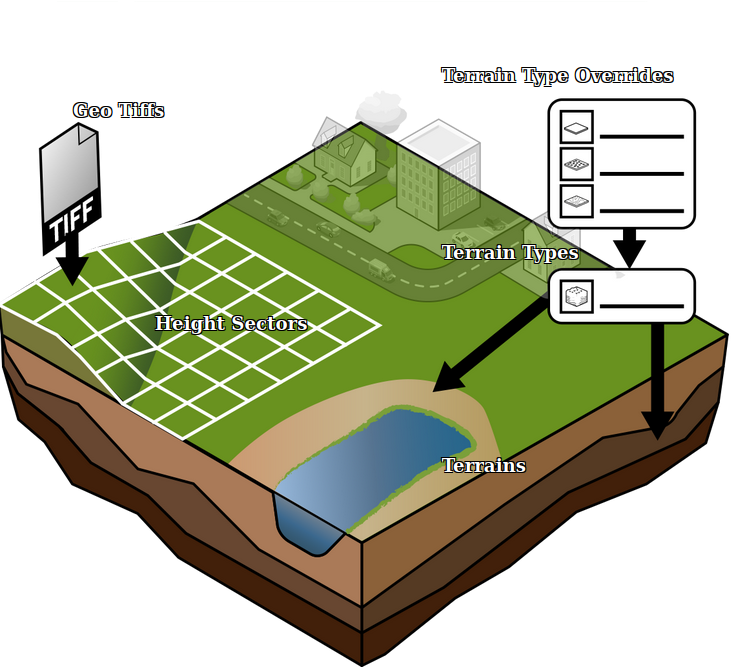Terrain: Difference between revisions
No edit summary |
No edit summary |
||
| Line 13: | Line 13: | ||
{{article end | {{article end | ||
|notes=* When creating a new project, the default Terrains and their [[Terrain Type]]s are based on data from the [[Project_Sources#BRO|BRO]]. | |notes=* When creating a new project in the Netherlands, the default Terrains and their [[Terrain Type]]s are based on data from the [[Project_Sources#BRO|BRO]]. | ||
|howtos=* [[How to manually change the Terrain]] | |howtos=* [[How to manually change the Terrain]] | ||
|seealso=* [[Terrain Type]] | |seealso=* [[Terrain Type]] | ||
Revision as of 15:27, 7 October 2022
The composition of the surface (above-ground) and sub-surface (underground) in the Project is defined using Terrains. A Terrain has a polygons indicating its boundaries and a Terrain Type indicating its type. For every location in the project, two terrains will be present: one surface layer Terrain and one underground Terrain.
Terrain Type
- Main article: Terrain Type
The Terrain polygons each have an associated Terrain Type, which holds the actual data of what the Terrain polygon represents. Only the Terrain Type holds any Attributes to define the Terrain's behavior.
Terrain elevation
- Main article: Elevation model
Although conceptually related, the height of the Terrain is explicitly not part of the Terrain itself or of the Terrain Types. Instead, based on the presence or selection of specific Terrain Types, modifications to the elevation model are made. For example, replacing a terrain with a type of water will cause a change for the elevation model, but that change can be supressed.
Terrains define what Terrain Type is present for any given location, and thus how the ground behaves. The elevation model defines the height of the ground for any given location.
Notes
- When creating a new project in the Netherlands, the default Terrains and their Terrain Types are based on data from the BRO.

